

 Hello and welcome to the unofficial Brian De Palma website. Here is the latest news: |
|---|
E-mail
Geoffsongs@aol.com
-------------
Recent Headlines
a la Mod:
Listen to
Donaggio's full score
for Domino online
De Palma/Lehman
rapport at work
in Snakes
De Palma/Lehman
next novel is Terry
De Palma developing
Catch And Kill,
"a horror movie
based on real things
that have happened
in the news"
Supercut video
of De Palma's films
edited by Carl Rodrigue
Washington Post
review of Keesey book
-------------
Exclusive Passion
Interviews:
Brian De Palma
Karoline Herfurth
Leila Rozario
------------
------------
| « | September 2024 | » | ||||
| S | M | T | W | T | F | S |
| 1 | 2 | 3 | 4 | 5 | 6 | 7 |
| 8 | 9 | 10 | 11 | 12 | 13 | 14 |
| 15 | 16 | 17 | 18 | 19 | 20 | 21 |
| 22 | 23 | 24 | 25 | 26 | 27 | 28 |
| 29 | 30 | |||||
De Palma interviewed
in Paris 2002
De Palma discusses
The Black Dahlia 2006

Enthusiasms...
Alfred Hitchcock
The Master Of Suspense
Sergio Leone
and the Infield
Fly Rule
The Filmmaker Who
Came In From The Cold
Jim Emerson on
Greetings & Hi, Mom!
Scarface: Make Way
For The Bad Guy
Deborah Shelton
Official Web Site
Welcome to the
Offices of Death Records
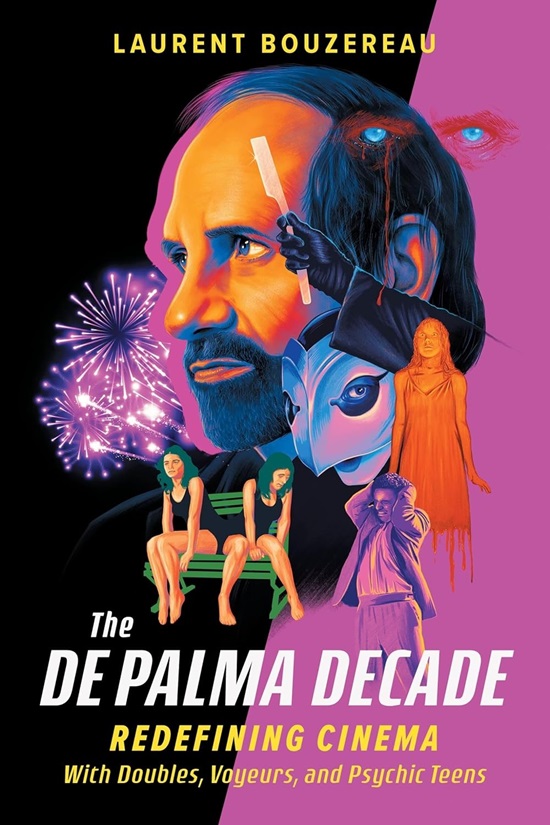
So why has De Palma been so frequently overlooked?“He made very provocative movies,” says Bouzereau. “The reviews would always call him a Hitchcock copycat. Maybe that perception stayed. When I was growing up in France and discovered him in the ’70s and became literally obsessed, he was kind of a pariah already.”
Acceptance seems to have come only gradually.
“I was always a fan, but I thought I understood his shortcomings as a creative and a craftsman,” Kenny says. “Now, though, a lot of the things that I thought were flaws in ‘Dressed to Kill’ and ‘Body Double’ and ‘Blow Out’ … I don’t see them that way anymore. I see more clearly what he was doing, and what he was trying to do.”
I didn’t know I knew who Laurent Bouzereau was. I watched his documentary, Five Came Back, when it was released on Netflix. Then, in the middle of reading this book, I watched his most recent documentary, Faye, about actor Faye Dunaway, on MAX, and didn’t realize Bouzereau directed it until the end. If you want to know what to expect from the book before reading it, I definitely recommend watching one of Laurent’s documentaries. I love film documentaries. Whether it’s something like Belushi or In Search of Darkness or Electric Boogaloo—they all make me happy, I have seen dozens of them, and I can say unequivocally, when it comes to biographical documentaries, I think Laurent stands in a class all of his own.The documentaries are organized, composed, and communicated in a way that is simultaneously logical and emotional—highlighting the humanity of the subject(s), their contributions to the art of film, and peppered everywhere else is what Laurent seems to personally admire about them—which becomes what you suddenly admire about him. They are infectious. They pull off this magnificent magic trick of making you want to live in that time and place and know these people and, upon exiting, realizing that’s exactly what you just experienced. Or, of course, as close to that as a documentary can possibly bring you. Like, a couple times, I got pissed off on behalf of Faye Dunaway. And I hold grudges. That’s the kind of power Laurent Bouzereau has and that very same magic and power is seamlessly transferred to The De Palma Decade.
In preparation for this book review, I wanted to see all of the referenced De Palma films I had yet to see. I was not ready. I was not ready for Phantom of the Paradise or Obsession or The Fury. By that I mean, I had a ‘90’s idea of Brian De Palma in my youth. Then, a more contemporary idea in adulthood. And then, I had to break my brain and squeeze in a third idea of who Brian De Palma was and, at that point, I was unmoored. I am convinced that Brian De Palma is a time-traveler, he’s from the future (and/or completely outside of time and space), and he specifically traveled to America in the 1970’s, to make films that were bound by the technology of the time, all because he wanted the goddamn challenge. Reading The De Palma Decade, I think there’s an element of truth in that unhinged theory.
The book covers the first ten years of Brian De Palma’s filmmaking career, separating the films thematically instead of chronologically: The Split—Sisters (1972) and Dressed to Kill (1980); The Power—Carrie (1976) and The Fury (1978); The Tragedies—Phantom of the Paradise (1974), Obsession (1976), and Blow Out (1981). Each section contains incredibly insightful analysis of De Palma’s filmmaking techniques, cast and crew interviews (including De Palma himself), and, what I particularly enjoyed, direct reflection from Laurent hiimself on how the films impacted their life.
For anyone looking to be introduced to Brian De Palma, I would wholeheartedly recommend The De Palma Decade. I would watch the films in the order of the book and after watching each, read the corresponding chapter. Then, I would rewatch all of the films again in chronological order so you can see the evolution of this filmmaker in real time. If I were teaching a film studies class, I would devote an entire semester of study to this with The De Palma Decade as the assigned textbook. I am officially in awe of Laurent Bouzereau and sincerely cannot wait for his next project. In the meantime, he has plenty of documentaries I haven’t yet seen and plenty of books I haven’t yet read. I consider Laurent Bouzereau to be any film critic’s aspiration and inspiration.
Bouzereau did some reporting, and some of his subjects actually have something to say. De Palma talks about the importance of music in setting the tone for his long, dialogue-free scenes (like that museum sequence). Hirsch riffs on the different approaches taken by “The Fury” stars Kirk Douglas and John Cassavetes: Douglas, who attacked his role with vim, came in hot but fizzled in later takes, while it took Cassavetes, who often booked acting jobs to help pay for the movies he wanted to make himself, about 10 takes to get loose. Nestled between the platitudes of “The De Palma Decade” are some genuine insights into the filmmaking process.But the author’s unabashed adoration of De Palma can be a hindrance to deeper understanding. Bouzereau touches on the primary controversy surrounding “Dressed to Kill,” that “De Palma conflates transness with mental illness and homicidal behavior.” Caine’s character does indeed come across as a trans person whose conflicted identity leads him to kill. Here we go. Bouzereau is going to ask his hero how he views all of this now. And then … he doesn’t. Instead, De Palma says a little about how his screenplay for “Cruising,” a movie ultimately written and directed by William Friedkin, led to some of his ideas for “Dressed to Kill.” With that, the author lets him skate, onto the next platitude. Early on, Bouzereau writes that he has “no intention here to make a social treaty or statement or defend the controversial aspects of De Palma’s work” (perhaps he means “treatise,” not “treaty”). Fair enough. But the idea of handling such a gleeful provocateur with kid gloves seems to somehow miss the point of De Palma’s work.
The book covers seven films, organized thematically into three sections: The Split (“Sisters” and “Dressed to Kill”), The Power (“Carrie” and “The Fury”) and The Tragedies (“Phantom of the Paradise,” “Obsession” and “Blow Out”). “The Split,” of course, has multiple meanings for De Palma, who used split screens not merely as an aesthetic exercise: Like many an artist of the macabre, going back at least to Edgar Allan Poe, he also made bloody hay out of the theme of doubling, and the terror and instability inherent to the idea of a divided self.
By the time he made “Sisters,” in 1972, De Palma had already done a few scrappy counterculture features, including “Greetings” (1968), “The Wedding Party” (1969) and “Hi, Mom!” (1970). But “Sisters,” a proper freakout starring Margot Kidder, playing conjoined twins, is the first of what we now think of as a De Palma movie: a psychosexual nightmare with madman instincts. Viewed with the hindsight of 52 years, it feels of a piece with other rule-breaking, devil-may-care horror films of the period, including George Romero’s “Night of the Living Dead” (1968), Wes Craven’s “The Last House on the Left” (1972) and David Cronenberg’s “Shivers” (1975).
It is, in other words, the real deal. Paradoxically, it also marks De Palma’s true entry into the sincerest form of flattery, the imitation game. Bouzereau starts his defense early, asking, “Is it fair to label De Palma a copycat? Isn’t he, rather, the legitimate heir to the Hitchcock kingdom?” He may, in fact, be both.
De Palma’s slavish emulation of Hitchcock runs through numerous films, and with notable specificity. Someone witnesses a murder in the apartment across the way, a la “Rear Window” (“Sisters,” “Body Double”). A blond star is murdered in a movie’s first act, as in “Psycho” (“Dressed to Kill,” which also throws in a couple of shower scenes and an obtuse expert explaining why a man dresses as a woman). He bows to “Vertigo” on multiple occasions, including “Blow Out” (man suffers the same tragedy twice, unable to prevent murders he has indirectly enabled) and, more directly, “Obsession,” about a grief-stricken man who reconstructs a lost lover. In these movies De Palma is almost like a hip-hop producer, mixing samples of different songs to create a new whole. He is director as collagist.
By focusing on De Palma’s ‘70s output (“Blow Out” and “Dressed to Kill” are technically early-‘80s movies, but exact decades can be imprecise markers of an artist’s thematic output), the book opts to pull up short of the director’s next, in many ways more eclectic, period. The ‘80s brought, among others, the opulence of “Scarface” (the subject of a pair of recent books, by Glenn Kenny and Nat Segaloff), the undiluted sleaze of “Body Double,” the mainstream success of “The Untouchables” and the underrecognized Vietnam War drama “Casualties of War.” If you seek a more comprehensive study, check out Noah Baumbach and Jake Paltrow’s fine 2015 documentary “De Palma.” In “The De Palma Decade,” the filmmaker gets a more precise spotlight. And he couldn’t have asked for a more devoted fan to shine it.
Like the volumes from Kenny, Blumenfeld, and Vachaud, Bouzereau’s study focuses on De Palma’s films (he sticks to the director’s high period, from 1973’s Sisters to 1981’s Blow Out). But this cinematic love letter contains more than in-depth commentary: there’s biography, oral history, and personal reflection. The result is a playful, even whimsical, contribution to the effort to consolidate De Palma’s auteur status, to evaluate De Palma’s reputation as one of America’s most important, though divisive, filmmakers.Bouzereau wrote a previous book on the filmmaker, so he knew he had to bring something fresh to the table. There are new interviews with the director and his collaborators, including actors Nancy Allen, Sissy Spacek, and John Lithgow, production designer Jack Fisk, composer Paul Williams, and editor Paul Hirsch. The interviewees offer considerable insight into De Palma’s execution of action, from the prom scene in Carrie to the use of split screen in Sisters and the climatic Steadicam chase in 1993’s Carlito’s Way. This said, the book offers, at times, a retread of the information in Noah Baumbach and Jake Paltrow’s addictive 2016 documentary, De Palma, released by A24, the home of De Palma disciples Ari Aster (Hereditary, Beau is Afraid) and Ti West (The MaXXXine trilogy). Still, Bouzereau ventures into uncharted territory that should please die-hard cineastes, posing the question of why Hi Mom! and Get to Know Your Rabbit haven’t received the same scalpel-sharp analysis given to the director’s other early films. And the chapter on Phantom of the Paradise, particularly Williams’ recollection of writing his song “Old Souls” is moving. (Note: there’s a delightful story in the book about Orson Welles trying to get his film The Other Side of the Wind up and running.)
Keep in mind that Bouzereau is a fanboy. This is a deeply personal reflection on the films of a director he places in a higher slot in the pantheon than Alfred Hitchcock. Unlike the probing Hitchcock/Truffaut, the oral history and analysis here tends to excessively soft on De Palma’s failures. The interviews are a mixed bag. Cliff Robertson’s “aw shucks” take on shooting Obsession contentedly stays at the level of the actor’s tan and ego while Spacek and Fisk are tender (and perceptive) about their working and personal relationship on Carrie. As for De Palma’s ultimate standing among the gods of cinema, put me down as a skeptic regarding some of his films. 1984’s Body Double wasn’t so much a thriller as a comedic pastiche on porn chic Los Angeles while 2006’s The Black Dahlia was a very frustrating product — it is a muddled adaptation of James Ellroy’s novel, its narrative undercut by flaccid dramatic tension. Still, if you approach the book’s hyperbole with caution, The De Palma Decade has the merits of Bouzereau’s documentaries Five Came Back and Faye: it is a thoroughly enjoyable portrait of a counterculture master of the scream scene. At its finish, I couldn’t help but utter one of De Palma’s customary exclamations, “Holy Mackerel!”

The 25 YEARS Carlotta Films collector’s poster
To celebrate our 25 YEARS, we have created a collection of limited and exclusive collector's memorabilia . Here is the collector's poster with the anniversary visual created especially for the occasion by the illustrator Thomas Walker aka Tommypocket .
- Poster 40x60 cm
- Delivered folded
Limited to 200 copies
Find the entire collection of exclusive Memorabilia 25 years here .

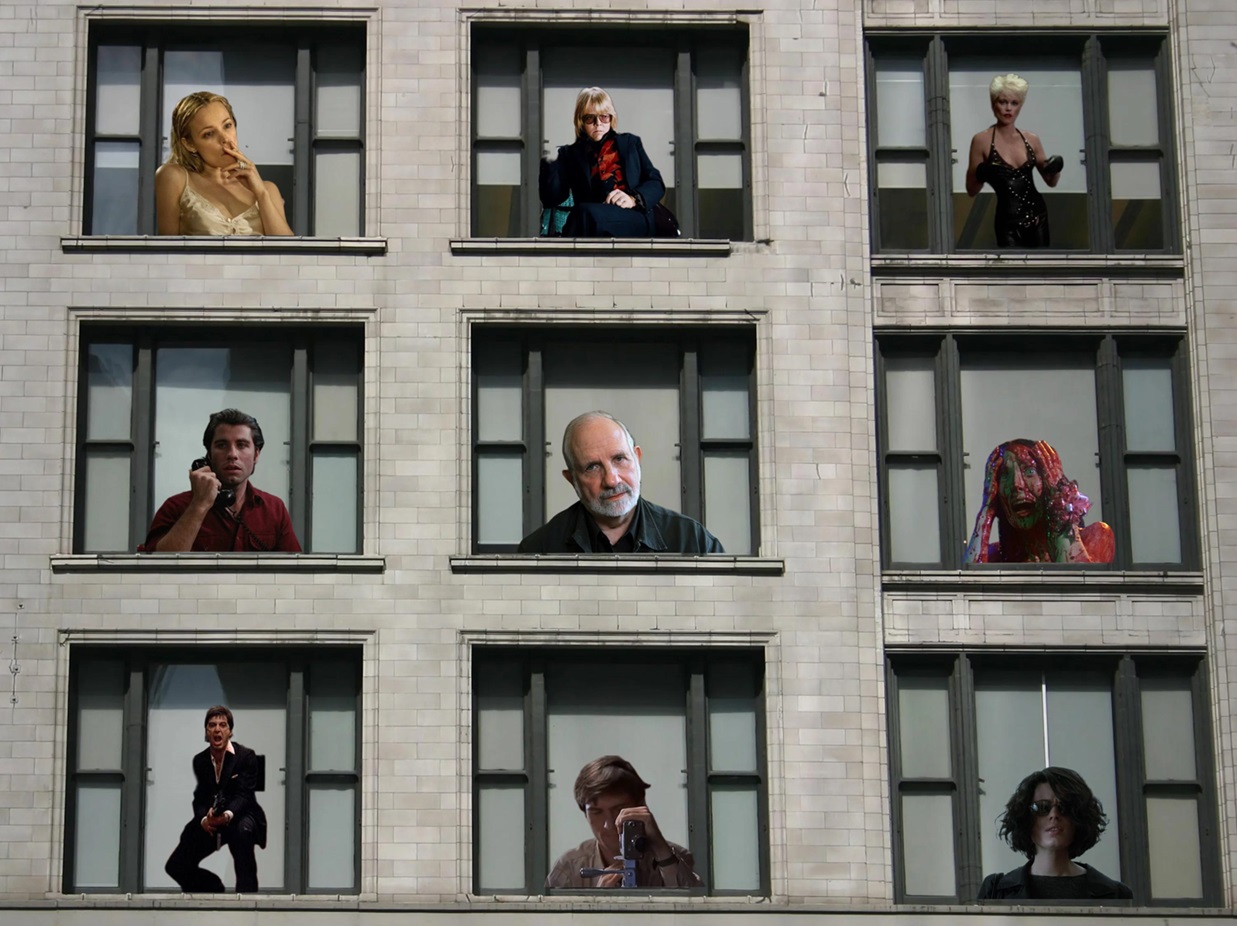
Not going to say there’d be no Even Better without Brian De Palma, but he certainly helped get the ball rolling on this thing. Last spring, we embarked on our first joint project — watching as many De Palma pictures as we could in the month of May. And thus De PalMay was born. (Yeah, it doesn’t really rhyme or make any phonetic sense, but you’ll have to roll with it.) We watched a whole bunch of his movies last year, and dedicated the 2024 season of De PalMay to an even more robust slate of big blindspots and classic rewatches, in preparation for a combined ranking of his 20 best films, which you’ll find below.More than most of his contemporaries, De Palma’s kind of a Rorschach test for moviegoers: to some, he’s the guy who directed Scarface and Mission: Impossible. Others, the voyeuristic pervert who mastered the erotic thriller. Or maybe, the (fossilized) assessment of a schlocky Hitchcock imitator. A deep dive into his work reveals all of these and more — a lot of Hitchcock, a little bit Godard, a bit more Brecht. But all told, he’s far greater than the sum of his influences, bending their approaches to become one of the greatest film stylists of all time and an expert practitioner, refracting the history of cinematic form into a language all his own. Few modern filmmakers have traversed the boundaries of the studio system and bristling outsider irreverence quite like De Palma, emerging with their techniques and identity so fully intact.
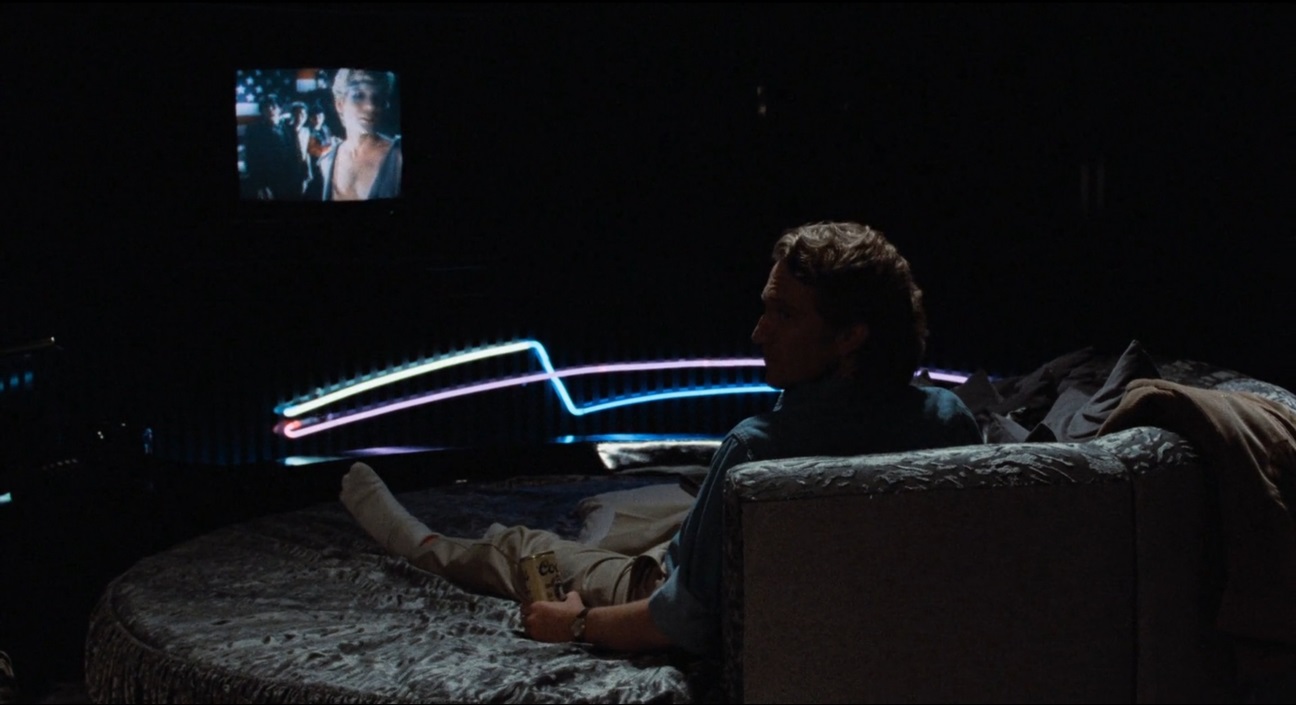
Last night, I had the pleasure of experiencing a Brian De Palma double feature at Melbourne’s Astor Theatre, showcasing Body Double and Blow Out. These films—brimming with De Palma’s signature style and thematic preoccupations—offer wildly entertaining exploration of prescient concerns that are strikingly relevant today. During the 80’s, De Palma was evidently fascinated with the elusiveness of truth, the perils of male impotence and sexual obsession, and the corruption and unresponsiveness of official institutions. From our historical vantage point, one can only conclude that the man was onto something.Body Double screened first. As the reel started to spin, my friend and De Palma aficionado Hamish warned that I was in for something truly strange. The plot centres around Jake Scully (Craig Wasson), a struggling actor who becomes embroiled in a murder mystery after spying on his beautiful neighbour, Gloria Revelle (Deborah Shelton). In this way, Body Double is a vigorously campified update to Hitchcock’s Rear Window and Vertigo, bringing them into an age where cinematic voyeurism and fantasy have become so powerful as to supplant reality. De Palma’s exploration of male leering here is not mere plot device or pastiche. Instead, it forms a configuration of Hollywood filmmaking into the precise shape of the slobbery masculinity it so often serves.
I don’t believe I’ve seen a more pitiable protagonist than Jake Scully, painfully conjured by the boyish Wasson. The character’s apparent ‘soft’ masculinity, true to life, belies something significantly more perverse. Jake’s immotility, both physical and psychological, channels a pusillanimous current within male subjectivity that has increased in deviance since the film’s release. His sheer obsessive fetishism is the very source of his inability to act decisively upon the world, representing the collapse of the ‘performance’ of masculinity under the weight of its own plasticity. He likes to watch—so he may only watch.
The double feature closed with Blow Out, which follows Jack Terry (John Travolta), a movie sound tech who inadvertently records a car accident that turns out to be a political assassination of the likely incoming President. This film is more intensively concerned with the complexities of uncovering the truth, amidst a web of deception and conspiracy, something Body Double approaches rather cartoonishly. De Palma’s focus on the auditory elements—creepily crafted sounds and eerie silences—serves as metaphor for the struggle to make sense of contradictions within reality (something that is once again beginning to prominently concern filmmakers).
Jack is consumed by a need to piece together sounds and images, cross-referenced with his own memories, to reveal the truth. This quest runs up against both institutional indifference and concerted cover-ups. As liberal democracies continue pioneering authoritarian state censorship, too often claiming the freedom of the few driven by their conscience to become whistleblowers, Jack’s total inability to make objective reality count for something feels prophetic. The film’s genuinely bleak and meanspirited conclusion is among the more audacious narrative choices in a career littered with them.
Both Body Double and Blow Out feature ‘strangler’ killers, who target women with the pervasive violence that is often sensationalised—yet inadequately addressed—by the culture industry and society more broadly. The male protagonists, despite their best efforts, are pathetic failures, unable to save the victims or even themselves. In fact, their feebleness and monomania are necessary elements for De Palma’s female characters to become mortally endangered.
De Palma’s films are also deeply reflexive, providing unflinching critique of Hollywood and even independent cinema. Body Double’s Hollywood setting allows De Palma to satirise the industry’s exploitation of sex and violence, while Blow Out examines the manipulative power of film and media in shaping perceptions of reality. Both films underscore how traumatic memories shape people’s present behaviours—the sole reservoir of sympathy De Palma lends to his leading men. All of this amounts to enthralling, splenetic cinema allowing no respite from the litany of social ills which dominate us.
If you haven’t already, submit yourself to these stupefyingly stylish apogees of De Palma’s vision—a vision that has only grown in salience since the 1980s.
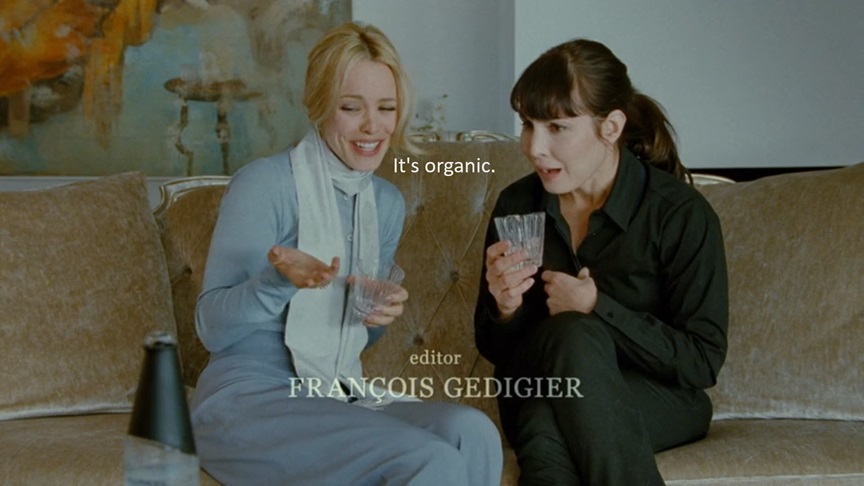




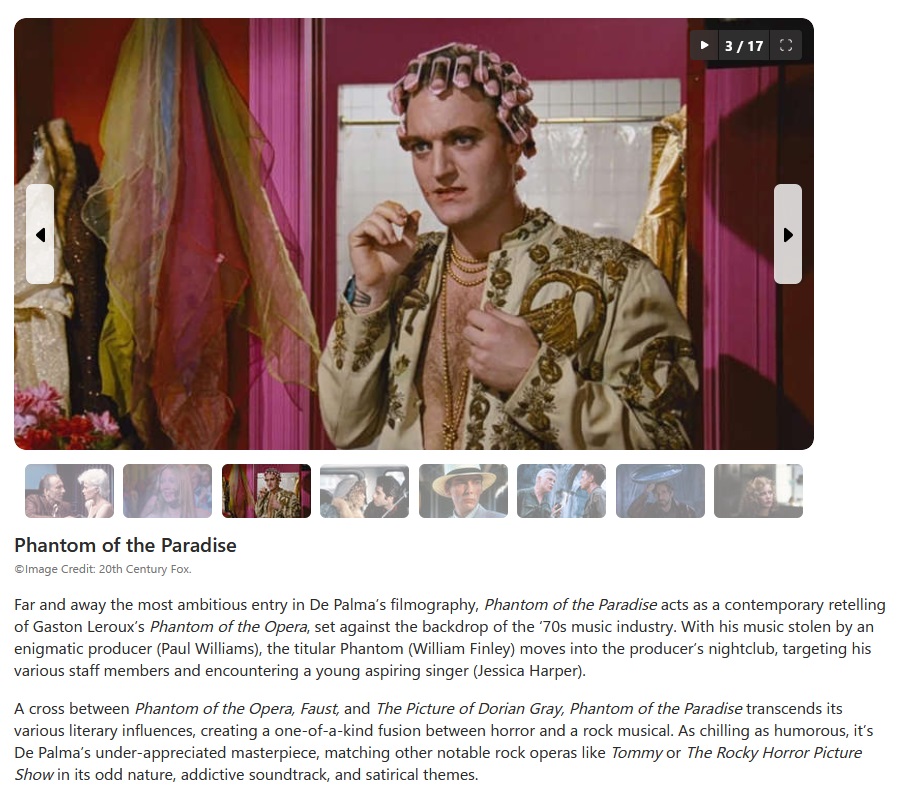
This is a slideshow worth viewing, as Chachowski's writing about the films throughout is much better than the average click-bait slideshow, and he does seem to be familiar with De Palma's work. Check it out.
Newer | Latest | Older